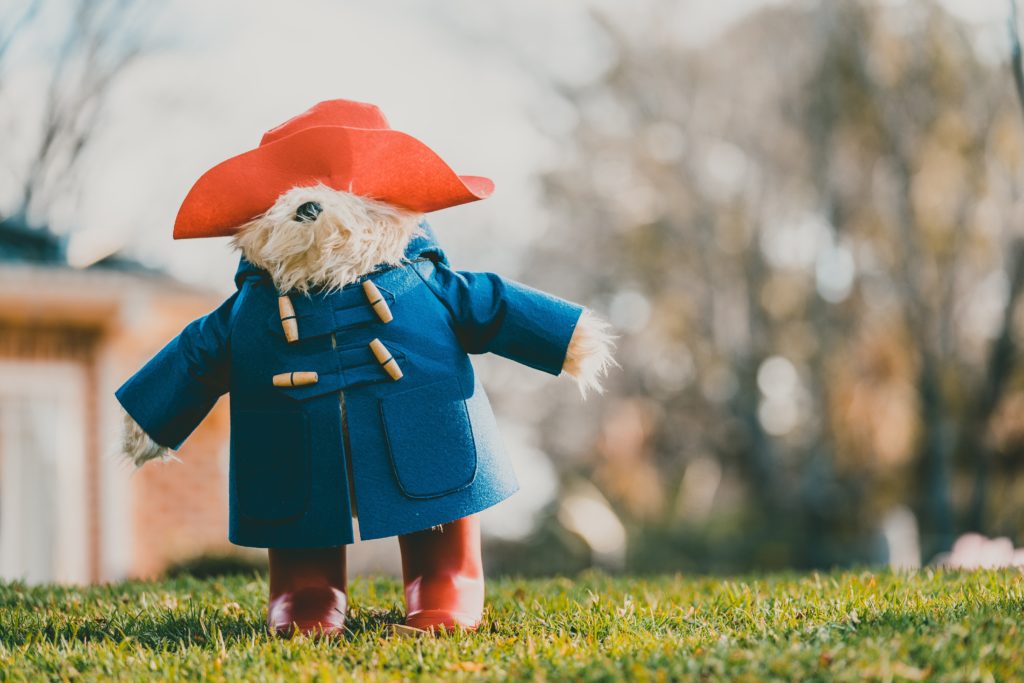Hints of passion in a pocket of joy
I was recently asked to be the keynote speaker at the 2022 Faculty of Education Awards for Excellence and Recognition night at Southern Cross University. The Awards committee was looking for someone who would deliver a congratulatory and inspirational speech to the student winners, their guests, and Faculty staff and suggested that I might fit the bill. I have never been asked to present at an Awards ceremony before. I was at first very humbled, then delighted to accept, and immediately terrified, what on earth would I say? Finding the right words has always been important to me and finding the right words for this ceremony of celebration, a meeting places of recognition for family and friends to rejoice in the life of accomplishments of one another, seemed more important than ever. I started and stopped with this sentence and that, conscious of the ways in which my words tumbled out onto the page with overbearing certainty, cloying nicety, and unabashed ventriloquism. Soon enough, I was in a pickle—a wordless cucumber stewing in vingeary prose. Charlotte Wood more eloquently describes this difficult situation as a writer’s “grumpy struggle”, the sense that something is wrong with what you have written and you know that it is going to take some “scrub bashing” in to sort it out (The luminous solution, p. 20). Wood suggests a number of techniques to embrace being in a pickle, one of them deliberately impersonating, embodying and/or borrowing another’s perspective (p. 32). I realised that this is what we do as writer’s all of the time—we turn to our favourite writer’s for inspiration on style, technique, form and creative processes more broadly. Emily Dickinson’s poem included here as a quote inspired the title of this piece—she plays a regular cameo role in my work— and I often lose myself in her words as a way to find my own. Virginia Woolf, Margaret Attwood, Sara Ahmed, Helene Cixous and Alice Hoffman are also in-sisterly friends I find solace but I decided it was Ursula K. Le Guin I needed for help in turning my salty writing into something more savoury sweet. In particular, I was thinking of the Bryn Mawr Commencement address Le Guin gave in 1986. Byrn Mawr is a small women’s college in Pennsylvania which places emphasis on turning passion for learning into a life of purpose and Le Guin’s speech spoke to the power of women tuning into and offering their experience as human truth. It was all the reminder I needed to remember that it is my passion for words in and of themselves which led me to use them in every which way I can to speak the truth of my experience and it is my love for words that this address must embrace—words and a childhood love of Paddington bear shared here as presented.
Opening
I would like to acknowledge that I am speaking to you as a white-settler-colonial-woman on the traditional lands of Yugambeh peoples. I pay my respects to their elders past, present and emerging, and acknowledge their unceded sovereignty—this always was and always will be Yugambeh land. I also acknowledge Indigenous peoples who have joined us from places near and far, remembering that ceremonies of celebration are meeting places of recognition for family and friends to rejoice in the life of accomplishments of one another. Thank you Amy, for your wonderful welcome. It’s a pleasure and a privilege to be able to share in this celebration of outstanding achievements with you all and I would like to extend a warm welcome to students, teachers, educators, researchers, staff in the Faculty and all the loved ones who sit beside you, to the Faculty of Education Awards for Excellence and Recognition.

A logophilic love affair
I have been in love with words for as long as I can remember, and it is my passion for words which has led me here today. Words are magic—they do things, say things, they carry things, feel things and they change things; they are the things with feathers that perch in my soul, singing tunes full of such longing and hope, and never stop at all. Cheeky little vagabonds, Virginia Woolf once called words, delighting in the adventure of following them as they play and dance about in the world.
“Within that little Hive,
Such Hints of Honey lay, As made Reality a Dream, And Dreams, Reality —”
Emily Dickinson, Poem no. 1607
My logophilic love affair began with a large black leather book with gold lettering embossed on the front. It belonged to my Pa, my mother’s father, and it sat on his brown laminated drinks cabinet right next to the equally as sizable Teacher’s Whisky bottle. This hard covered 1948 Merriam-Webster dictionary with 2006 pages, complete with carved indentations to mark the beginning of each letter, was the most wonderful book I had ever seen, and it was here that I began my lifelong quest to follow words around. Upon arrival at my grandfather’s house, with a wink he would nod in the direction of the room where this most beloved book lived and there I would stay. My adventure always began by turning to page 541—the letter “E”, the perfect place to start for a little girl named Elizabeth. On the first page of “E” entries, there was an illustration of an eagle, an ear, and a coronet of an earl. The dictionary told me that “E” can sound open or long, and when placed at the end of a word is generally silent, yet after letters such as s or j, changes sound completely. A clever and necessary letter I thought, and another quickly followed—because my name started with the letter E, maybe one day I might become something other than normally quiet, and instead find a crafty and needed place in the world.
A word about the word “awards”
I was and am still in love with this dictionary and in thinking about what I should say to you this afternoon, I decided to give in to my passion for words, follow my etymological instincts, and embark on a search for the heart of the word “award” itself. A noun and a verb, the general meaning of award today is “to confer or bestow as being deserved, merited or needed after careful consideration”. If we go a little further back in time to the origins of this word, we find the noun form begins life in the 13th century in Middle English “to decide”, from Anglo-French “awarder” or “agarder” to look at, examine or resolve, and from Latin “warder” or garder meaning to “look after”—to watch and take care. I then began to wonder what this might mean as applied to all of you—the recipients of an award. All of you have been bestowed this recognition because your passion for examining, resolving, watching, looking at and taking care, led you here—pause for a moment and think about this passion. What is the thing that gets you out of bed each day, the thing that makes the laughter and the tears that come with hard work worthwhile, the thing that fills you with joy for simply having shown up, the thing that makes you want to spread your wings and fly freely, the thing that makes you want to dance, rage and go farther than you ever have before? This passion has been your faithful and most necessary companion on your journey here, and the things you have said and done and felt and carried with this passion have woven a special kind of magic into the world, shimmering, touching and changing the lives of others as well as your own.

Change. Freedom. Passion. Hope. Joy. Love; these are the some of the words I am following around as I speak to you today. In accepting the Award for Distinguished Contribution to American Letters in 2014, one of my favourite feminist-science fiction writers, Ursula K Le Guin, said with urgency, that hard times are coming, and we are going to need writers—and here let’s take artistic license to substitute words relevant to us—we are going to need professional staff, teachers, educators, and researchers who can see alternatives to how we live now and imagine other ways of being, who can remember education as the practice of Change. Freedom. Passion. Hope. Joy. Love. It is your passion for education which led you here and the award you are receiving today recognises that spark. And, I can’t help but think, if we go back to the origins of the word award, that it is also a call to reciprocate the gift, to decide, to watch, to look after and to take care of the kind of world we all want to live in now, and in the future. This is an awesome responsibility and I hope you will hold it tightly with both hands and never let it go, you’ve got this, it’s time to begin, because if not now, when?
A lovable small bear in a blue duffle coat

You might be wondering then, what a bear called Paddington has to do with awards, passion and changing the world. As a little girl, Paddington was my favourite story book character who came to life in 1958 with the help of Michael Bond and Peggy Fortnum, inspired by newsreels of child evacuees with labels around their necks sitting alone on suitcases on cold train platforms leaving London in World War 2 and the story of Paddington goes something like this. A small and lone bear from the deepest darkest Peru was sent to London by his recently widowed Aunt Lucy who had gone to live in the Home for Retired Bears in Lima. She attached a note to his coat lapel that read, “Please look after this Bear, thank you”, hoping that someone would care for him. The Brown family found him, took him home to 32 Windsor Gardens, and decided to call him Paddington after the train station where he was found.
The small English-speaking bear wears an old brown hat, carries a tattered suitcase, sports a blue duffle coat with large pockets and wooden buttons and has a passion for marmalade, particularly orange marmalade. I loved Paddington’s duffle coat and wished for one just like it. My childhood home located in the Central Highlands in Victoria was bone-cold; complete with grey skies, lazy winds and drizzle, the cold was a constant companion for nine months of the year or more. I always thought if I had a thick duffle coat just like Paddington’s I might find some warmth. I didn’t mind if it wasn’t blue, any colour would do, so long as it was a duffle coat with wooden buttons and large pockets. Most important of all were the pockets; they needed to be big enough to fit a marmalade sandwich. Paddington’s strategy for dealing with crises that life brought his way was to always have a marmalade sandwich on hand. At critical moments in hard times, all Paddington needed to do was reach inside his pocket and pull out his marmalade sandwich, and voilá! Said sandwich consumed and crisis averted. Paddington’s pocket, large enough to hold a marmalade sandwich, was a pocket of joy.
It is with much joy that I have shared my passion for following words around as words of congratulations to all award recipients today. My hope is that upon receiving this award, you will take a lead from Paddington, reach into your very own pocket of joy each day and every night, take a bite of your version of a marmalade sandwich and remember the taste of passion that led you here. When you have finished, take two more slices of bread, a slab of butter and a spoonful of marmalade, make another sandwich, and continue to decide, to watch, to look after and to take care of the kind of world we all want to live in now, and in the future by sharing your pocket of joy wherever you go. We honour your achievements and thank you for the sparks of Change. Freedom. Passion. Hope. Joy. Love. you have ignited in the world, and I look forward to indulging in a marmalade sandwich or two with you at the conclusion of today’s presentations.
References
Charlotte Wood. The luminous solution: Creativity, resilience and the inner life. Allen and Unwin, 2021.
Emily Dickinson. The complete poems. Global Grey Edition, 2020, p. 1655.
“Love” Photo by Nick Fewings on Unsplash
“Paddington” Photo by Rod Long on Unsplash
“Passion led us here” Photo by Ian Schneider on Unsplash
Ursula K. Le Guin. (1986). Bryn Mawr Commencement Address. https://serendipstudio.org/sci_cult/leguin/

Umami xxx
Thank you Nicola 💟